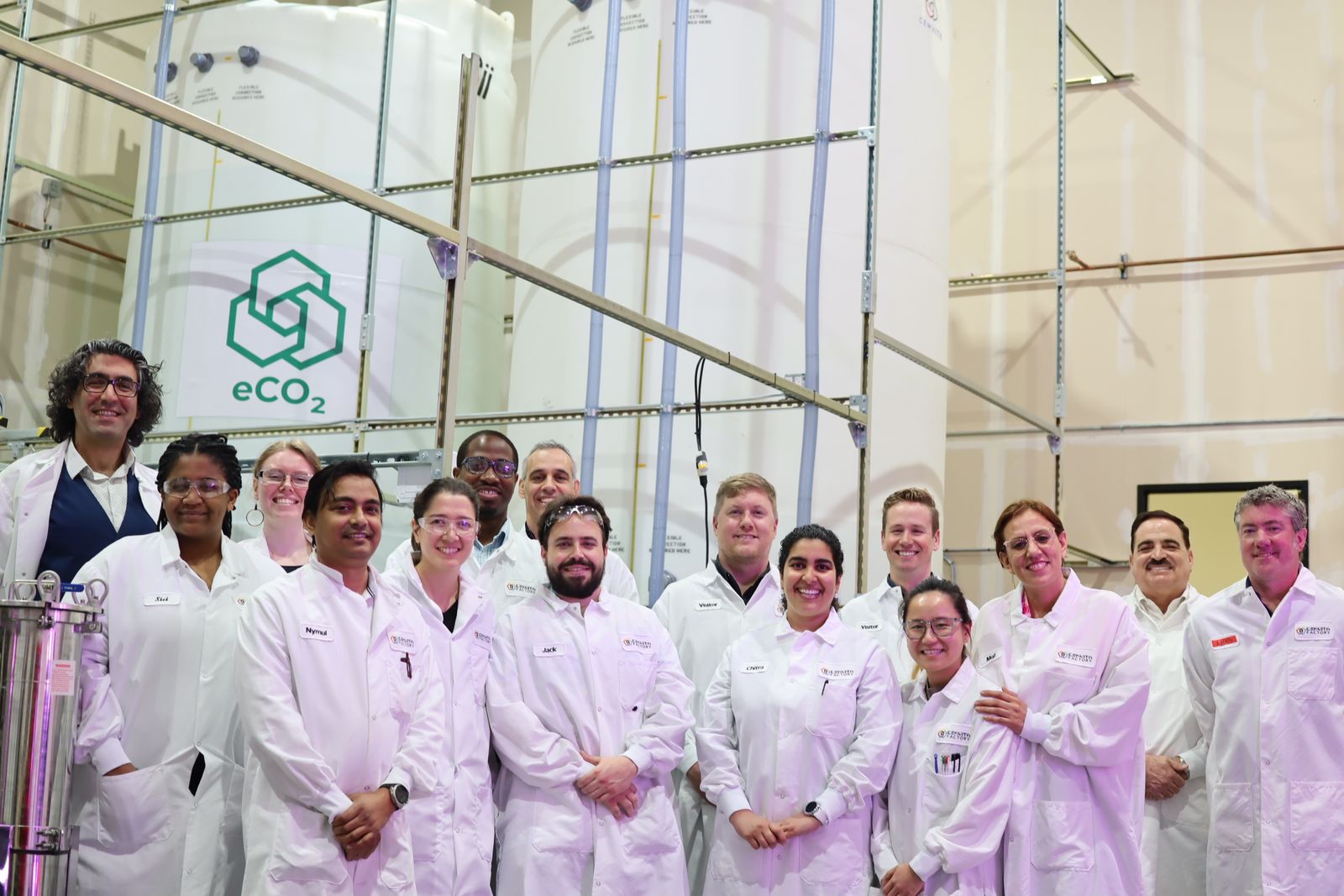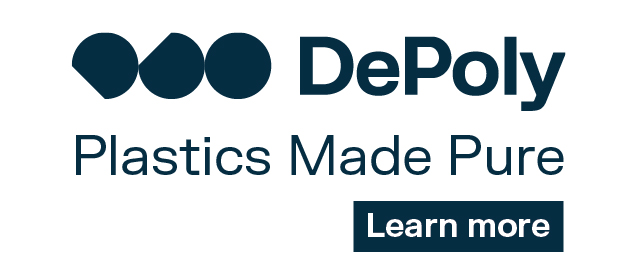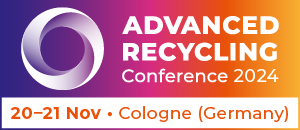
Cemvita, the standard for biosolutions in the energy industry, today announced the opening of a pilot plant in Houston, TX. The plant marks a landmark step in the development of technology for using CO2 emissions as feedstock to produce valuable biocommodities including fertilizer, plastic, methane, and fuels. The opening of the pilot plant also marks the launch of Cemvita’s eCO2 business as a wholly owned company under Cemvita.
“It’s an ambitious first step in providing heavy industry customers with climate-positive alternatives. We’re making it possible for our partners to take part in the energy transition and reach decarbonization goals – without cutting into margin.”Tweet this
Boasting a substantial volume of 55,000 liters, the plant is currently producing eCO2TM Oil, a cutting-edge microbially-produced alternative to soybean oil. The company is already shipping samples of eCO2 products to customers including leading renewable fuels companies and plastics manufacturers. The eCO2 company is already in pre-FEED engineering on full commercial scale designs.
The biofuels industry is currently facing feedstock shortages and price fluctuations due to growing season risks. In contrast, eCO2 plants can provide reliable feedstock production with minimal land and electricity needs, without relying on hydrogen or sunlight like algae. Furthermore, the output of eCO2 plants will be carbon-negative and are aiming to be cost competitive with existing crop based HEFA feedstocks and fuels, which is a crucial factor for the successful adoption of any new biomanufacturing process.
Cemvita’s eCO2 biomanufacturing platform uses engineered microbes that absorb and convert carbon dioxide into essential feedstocks and finished products needed to build a renewable future. The plant operates at ambient temperature and pressure and requires very little electricity. The eCO2 platform is flexible and designed to produce reliable results in harsh operating environments. From discrete manufacturing to petrochemical facilities, the process can be scaled and customized for any company looking to make their current processes energy transition-ready.
“The energy transition requires completely new, cost-effective approaches for heavy industry,” said Charlie Nelson, COO of Cemvita. “We built this next-generation pilot plant in response to strong demand from offtake partners who are actively seeking sustainable solutions to the HEFA feedstock shortage.”
Traditional biofuels, including renewable diesel and sustainable aviation fuel, have relied on oils derived from crops, such as soybean and corn, as well as recycled vegetable oils. As demand grows for petroleum-free alternatives, feedstock is in short supply and must compete with food markets. Crops of soybeans, sugar, and corn use huge swaths of land, and the raw materials require extensive refining — two factors that impede the processes from being sustainable.
Cemvita’s eCO2 platform bypasses the food versus fuel debate with a low-cost, renewable feedstock with no carbon footprint attached. One eCO2 plant at full commercial scale can annually replace the oils produced from 200,000 acres of soybean farmland.
“Our pilot plant represents the most cost-effective way of producing chemical feedstocks with all of the economic benefits of agriculturally-derived equivalent and none of the harmful environmental impacts,” said Moji Karimi, CEO and co-founder of Cemvita. “It’s an ambitious first step in providing heavy industry customers with climate-positive alternatives. We’re making it possible for our partners to take part in the energy transition and reach decarbonization goals – without cutting into margin.”
About Cemvita
Cemvita is the standard for biosolutions in the energy industry.
Nature-inspired technologies are humanity’s most powerful allies in the fight against climate change. The microbes we engineer at Cemvita can fully decarbonize the most intensive industrial processes and massively shrink their overall environmental footprint.
Our field-tested biotechnologies can be seamlessly integrated into existing workflows and infrastructure. Cemvita’s solutions address sustainable natural resource extraction, carbon negative chemical production, and the closed-loop renewal of waste as feedstock.
With Cemvita, the sustainable choice is also the economical choice. All of Cemvita’s solutions are cost competitive or cheaper than traditional alternatives. Whether it’s metal and mineral extraction or the production of hydrogen and biofuels, Cemvita partners with the world’s largest companies to accelerate the energy transition.
Cemvita was founded in 2017 and is proudly based in the energy capital of the world—Houston, TX.
About eCO2TM
eCO2TM biomanufacturing transforms global industrial emissions into valuable commodities for the Energy Transition.
Our carbon-utilization platform converts carbon dioxide into renewable feedstocks, fertilizer, and fuels. By engineering microbes that feed on carbon dioxide at the point source of emission, we’re producing a solution to climate change that’s economical, accessible, and enables the circular industrial economy.
The eCO2 platform is flexible and designed to produce reliable results in harsh operating environments. From discrete manufacturing to petrochemical facilities, our platform enables our partners to capture and use their emissions to support their circular economy and energy transition goals.
Source
Cemvita, press release, 2023-04-12.
Supplier
Share
Renewable Carbon News – Daily Newsletter
Subscribe to our daily email newsletter – the world's leading newsletter on renewable materials and chemicals

















